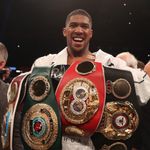UofMstateU

Legend

Posts: 39,243
Joined: Dec 2009
Reputation: 3580
I Root For: Memphis
Location: |
RE: So anybody watching the Reddit vs. Hedge Fund battles?
(02-07-2021 01:14 PM)Attackcoog Wrote: (02-01-2021 04:11 PM)CrimsonPhantom Wrote: Quote:With that out of the way, let’s review something important that happened last year, when big cap tech stocks like Tesla and Apple started exhibiting unusual volatility to the upside. It turned out that Softbank, one of the largest institutional investors in the world, had been executing a dangerous strategy of buying record amounts of out of the money call options on those stocks. Their actions forced some of the options trading establishment into something called a gamma squeeze, a positive feedback loop that can be thought of as the options markets’ equivalent of a short squeeze. Here’s the FT:
The surge in purchases of call options — derivatives that give the user the right to buy a stock at a pre-agreed price — has been the talk of Wall Street, as the sheer size of the trades appears to have exacerbated a “melt-up” in many big technology stocks over the past few months. In August alone, Tesla’s share price shot up 74 per cent, while Apple gained 21 per cent, Google’s parent Alphabet rose 10 per cent and Amazon 9 per cent.
One person familiar with SoftBank’s trades said it was “gobbling up” options on a scale that was even making some people within the organization nervous. “People are caught with their pants down, massively short. This can continue. The whale is still hungry.”
As the article also points out, it was generally understood that what Softbank was doing (with billions of dollars, no less) was dangerous. Not only could it end badly for them, but it had painted other players into a corner, creating a dangerous dynamic that could reverse abruptly.
Now, knowing all of that, and having seen the systematic crackdown on retail investors executing a similar strategy last week, we can ask a few simple questions:
How many of Softbank’s service providers refused to execute their trades? How many banks, prime brokers or options dealers said “sorry, this a dangerous strategy that will end badly, plus it puts the rest of the market at risk. You can no longer buy call options on these particular stocks”?
How many veteran financial reporters working in TV or print expressed shock and outrage? How many pontificated out loud about the blatant disregard for fundamental analysis?
How many people at the SEC, Federal Reserve, U.S. Treasury or even the White House actively monitored the situation and worried about the safety of the market?
How many people within the traditional financial establishment argued that perhaps we need tighter regulations to prevent this sort of thing from happening?
You already know the answer to all of these questions. Even if you don’t understand the technical aspects of how Wall Street works, you know in your heart that so-called institutional investors often do risky, dangerous, and (in retrospect) stupid things, but nobody ever stops them. This despite the fact that every once in a while those same strategies end in disaster and put the rest of the financial system, not to mention the broader economy, in jeopardy.
You know this because in the back of your mind, you remember something about a fund called Long Term Capital, which was run by Nobel prize winners, blowing up in the late 1990s. You lived through the 2008 crisis and may have read a book like Too Big to Fail or seen a movie like The Big Short. You vaguely remember reading about something called a repo crisis in 2019. You recall how just last year, at the start of the Covid crash, central banks like the Federal Reserve had to pump ten times more money into Wall Street than Main Street, even though ordinary people needed the money more.
What you understand intuitively about all of these events is that the pros — the supposedly sophisticated investors who control the vast majority of capital in the world — somehow ****** up. They did things that enriched them, but ended up costing society as a whole. And yet, not only did nobody in a position of power try to stop them, but regulators and government representatives — the people who are supposed to be looking out for your best interests — argued that your tax dollars should be used to bail them out. Their gambling didn’t make you any richer, but their crapping out still cost you.
Despite what the financial media would like you to believe, the most surprising thing about last week wasn’t the fact that a bunch of beaten down stocks went flying. Crazy **** happens in the stock market all of the time, especially in an era of record monetization when the Federal Reserve prints money faster than Taylor Swift releases albums.
Most of the self-righteous hand wringing was an act. Aggressive investors utilizing leverage in herd-like fashion to pursue a risky bet is nothing new. It’s called trading, and that’s what most money mangers do. They don’t invest. There’s a reason why banks and hedge funds have trading desks and people call it the trading day.
No. The real controversy last week was about who was winning and who was losing. Retail people on apps like Robinhood aren’t supposed to stick it to the big boys. They are supposed to be the so-called dumb money, the schools of tiny fish that exist so whales like Softbank and Citadel have something to feast on. People who go to Davos aren’t supposed to lose money to kids from Denver. But last week, they did. That’s why the financial establishment reacted so strongly.
Let me pause here to reiterate my belief that I think this kind of trading is extremely risky and not that far removed from betting at the track, regardless of who is doing it. I strongly advise everyone I know to stay way from margin trading, options and short squeezes. That said, I think people should be free to do whatever they want with their money, especially now that their central bank is doing everything it can to destroy its integrity.
I am outraged by the hypocrisy of the financial services industry. Any doubt that the system is rigged has been eliminated. Why do the rich only ever get richer? Because of what happened last week.
In all my years of working in this industry, I have never heard of brokers pulling the plug on their clients because they were making too much money.
If anyone is to be banned from putting on risky trades, it should be the supposedly sophisticated hedge funds who’ve needed to be bailed again and again, not your cousin who recently bought a few shares of GME in her Robinhood app. Your cousin wasn’t the one who ****** up in 1998 or 2008 or 2019 or 2020. She didn’t drive Lehman Brothers into the ground or destroy MF Global.
But the financial establishment — the same establishment who’s always gone out of its way to celebrate people like John Meriwether, Dick Fuld and John Corzine — decided that your cousin wasn’t allowed to play the same game, and had the audacity to pretend this was for her own protection.
The fact that she was making money off of hedge funds like D1 (one of Robinhood’s biggest investors) and Citadel (one of Robinhood’s biggest sources of revenues) had nothing to do with it. The fact that Ben Bernanke has been a senior advisor to Citadel and Janet Yellen has collected almost a million dollars in speaking fees from the same firm had nothing to do with it.
The issue here isn’t how the aggressive buying of stocks like Gamestop ends, because it’ll probably end badly. The issue is that nobody ever tries to stop hedge fund managers from doing the same exact thing. When they gamble with our futures, it’s called capitalism. But when retail people do it, it’s a menace to society that must be stopped.
Firms like Robinhood are now claiming that they didn’t freeze trading in a handful of stocks because of some nefarious conspiracy. They did it because the back-end clearinghouses like DTCC who process their trades forced them to put up too much capital for those names. Here’s the New York Times:
A more detailed explanation: Brokerages post money with the D.T.C.C. to cover customers’ transactions while they wait for the trades to settle. With such a big surge in trading, the clearing hub wanted more assurance: “It’s the D.T.C.C. saying ‘This stuff is just too risky,’ ” said the Bloomberg Intelligence analyst Larry Tabb.
Other online brokerages also cited the D.T.C.C. as a factor in decisions to impose trading restrictions.
The brilliance of this excuse is that it only proves the skeptics and conspiracy-theory believers right. DTCC is a for-profit monopoly that sits at the heart of America’s financial system. It is controlled by the biggest Wall Street institutions and responsible for all public equity settlement. A subsidiary of it literally owns every single share of publicly traded stock in America. Yes, you read that correctly. You don’t actually own your shares of Apple or Microsoft, they do. You are only allowed to enjoy the financial benefits of being an investor because your corporate overlords let you. Why? Because the government wants it that way (the fact that financial firms like DTCC always donate a lot of money to politicians has nothing to do with it.)
It’s quite possible that the above justification for the crackdown is technically true: clearinghouses and firms like DTCC suddenly jacked up their collateral requirements because they were afraid the short squeeze would reverse and end badly. On the surface, this is plausible.
But why have we never heard of the same thing happening to the institutions who also pursue risky trades, use margin, trade options, and often pile into the same crowded trades? Why didn’t this sort of thing happen last year, at the start of the pandemic? Surely an environment where everything is crashing is more dangerous to the back-end plumbing of Wall Street than one where only a few stocks are going up.
And therein lies the rub. Hedge funds and billionaires didn’t have to be restricted last year because the government intervened and used trillions of dollars of your money to make sure “the system” kept working for them. Just like it had in 2019, 2008 and 1998.
Ordinary people don’t get that kind of protection, so they aren’t allowed to play. The billionaires who build ridiculous mansions too close to the water get free flood insurance, but you are a mere renter, so you don’t qualify.
If our financial system was remotely fair, or at least consistent in its response to unusual developments, then the Fed would have been on the phone with DTCC and Robinhood all week, offering liquidity injections and credit lines to keep the system working. The Treasury department would have begun planning an emergency fund to bail out Gamestop and AMC shareholders if the need arose, and Congress would have begun deliberations on the Troubled Retail Investor Relief Program.
If.
Years from now, when most of the world has moved on to a different kind of financial system, a fully transparent one built on fundamental properties of equality and censorship resistance, we will look back on the events of this past week as a key turning point.
Link
Does anyone actually believe the clearing house claims? In March of this year the ENTIRE market was trading at record levels of volume. Robinhood was just just fine when the ENTIRE market is going crazy---but we are to believe they couldnt handle high volume in just a handful of stocks? Give me a break. Why was only TD Ameritrade and Robinhood affected by this liquidity issue? Odd that the two brokerage houses with ties to the funds losing their butts were the only brokers affected by this oddly narrow liquidity issue. If this is legit, then there is only one place to look----the Biden White House. If liquidity was an issue, Im guessing carefully placed calls to the Biden White were answered and the Fed refused to extend the necessary overnight credit to these brokers. Either way--it was BS. It was a manufactured liquidity issue.
The fact that they didnt shut down trading on any of the other stocks is what makes their "story" sound like a lie.
"I want to buy 1000 shares of IBM" - Sure, no problem
"I want to buy 1000 shares of Micrsoft" - Ok, no problem
"I want to buy 1 share of game stop" - OH MUH GERD NO!!!!!!!!!!!!!!!!!!!!!
|
|






























































![[Image: EtAsDkOUYAEO9Jr-768x598.jpeg]](https://www.weaselzippers.us/wp-content/uploads/2021/01/EtAsDkOUYAEO9Jr-768x598.jpeg)

